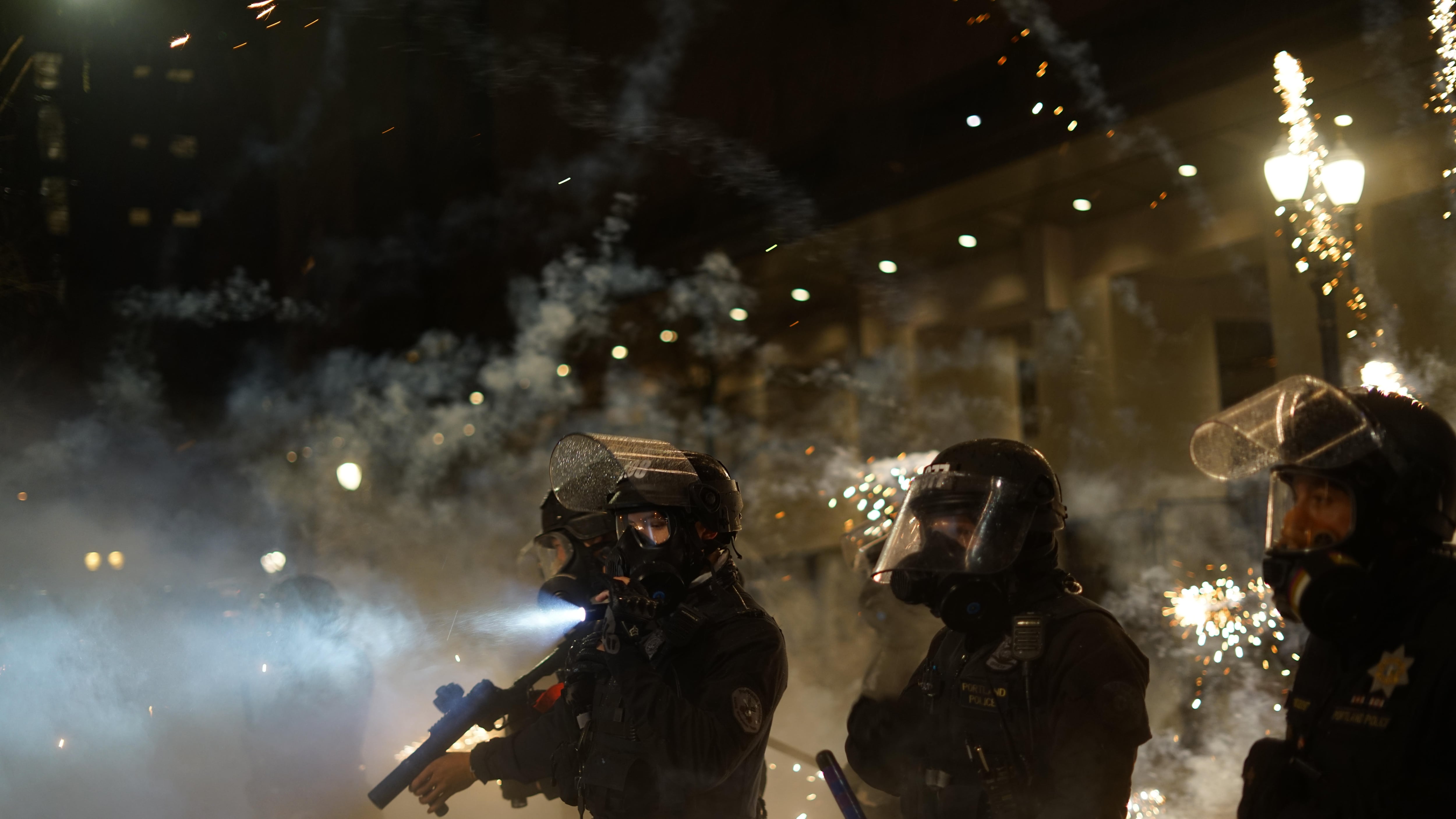A week after demanding stiffer criminal penalties for destructive protesters shattering windows and spraying graffiti in downtown Portland, Mayor Ted Wheeler conceded today that no quick fix was imminent.
Wheeler met with local, state and federal officials this morning, trying to figure out what law enforcement tactics would discourage people who disguise their identities and repeatedly smash the windows of businesses to communicate their demands to defund the police.
"The mayor understands that the media and our local community are hungry for immediate solutions," Wheeler spokesman Jim Middaugh said in a statement Friday evening. "If this situation were easy to address it would have been addressed already. The mayor is committed to finding effective solutions, even if it takes time."
On Jan. 1, Wheeler demanded the Oregon Legislature create tougher criminal penalties and deliver more intelligence-gathering tools for police to track small bands of black-clad vandals who regularly smash windows. On Thursday, The Oregonian reported that Wheeler's ideas had not been included in the city's agenda for the legislative session that begins later this month.
As WW reported Wednesday, the proposal to increase criminal penalties would require buy-in from the rest of the City Council, Multnomah County District Attorney Mike Schmidt, and state lawmakers. In all three cases, the trend for the past year has been toward lessening criminal penalties and decreasing incarceration.
Middaugh says Wheeler hasn't abandoned the concepts. But he emerged from his meeting with law enforcement Friday with less specific demands, suggesting he saw the call for tougher criminal statutes as a nonstarter.
"The group agreed that the current tactics being used by those engaged in criminal destruction have evolved and that the response from law enforcement and other public agencies also needs to evolve," Middaugh said. "The criminal tactics Portland and other cities are confronting are new. Creating workable, effective solutions requires thoughtful and constructive collaboration across multiple agencies and stakeholders."
That language is a far cry from Wheeler's speech on New Year's Day, where he quoted The Dark Knight and pledged a crackdown.
Wheeler faces pressure to fix an oddly intractable problem. His largest donors include downtown property owners whose buildings are being damaged by a small cadre of masked vandals—likely no more than 50 people, the most dedicated and radical of Portland's anti-police demonstrators. But the small size of the groups makes them more difficult to thwart without violating their civil liberties, and police often seem baffled by when and where the damage will occur.
Complicating the city's response is the fact that anti-police protesters enjoyed moral authority for much of 2020, following the killings of Breonna Taylor in Louisville, Ky., George Floyd in Minneapolis, and Jacob Black in Kenosha, Wis., among other incidents.
For most of the year, District Attorney Mike Schmidt pledged to dismiss most property crimes at protests, saying prior crackdowns added to social and racial injustice. His office is now publicly announcing indictment for vandalism, suggesting that Schmidt, too, is feeling pressure to end the nightly raids.

